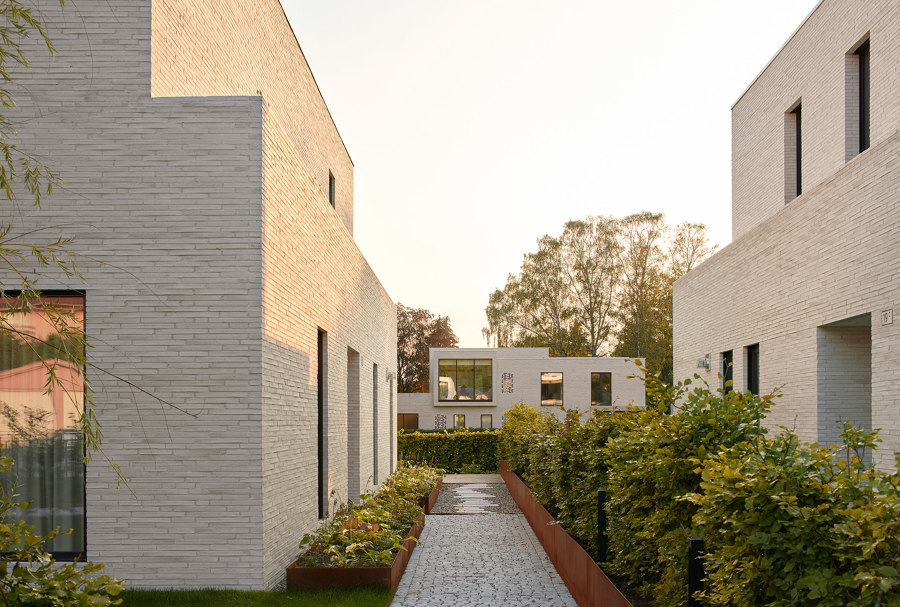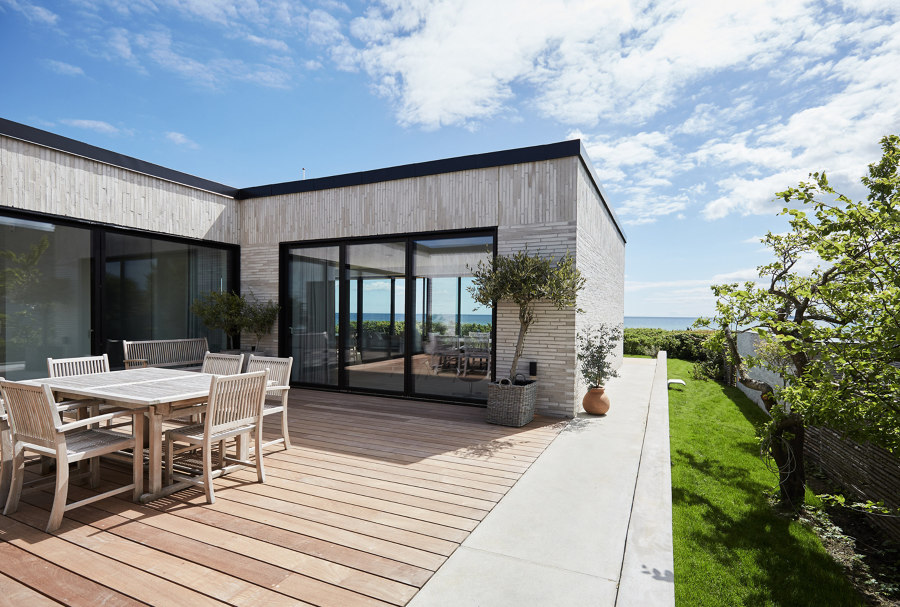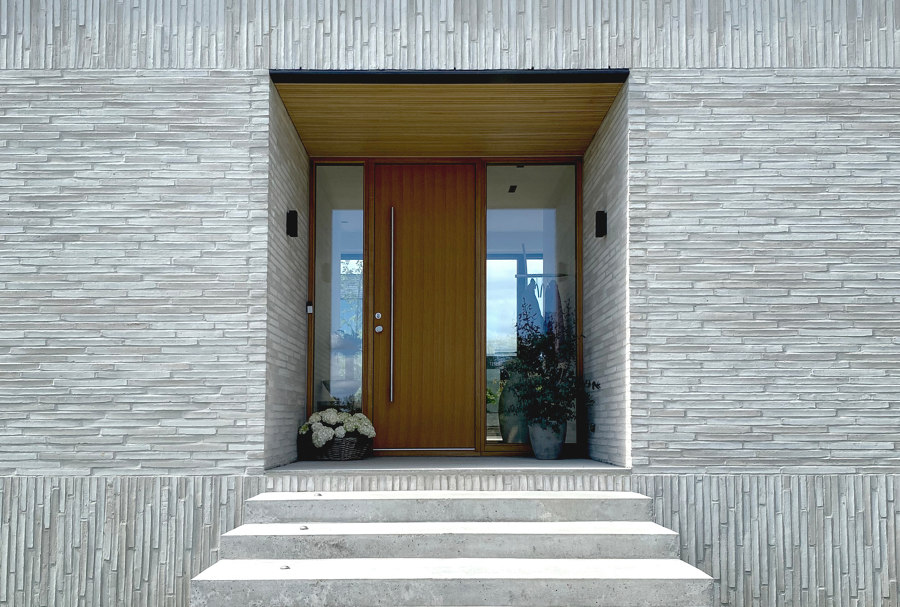Playing the long game: RANDERS TEGL
Brand story by Emma Moore
Aalborg, Denmark
24.11.20
Twice as long as conventional bricks and just 38mm high, the linearity of the Ultima brick offers architects refreshing ways to dialogue with surrounding environments.
Long format bricks allow for the introduction of quiet ornamentation. In Reiulf Ramstad architects' Bygdøynesveien housing project, linear and pixelated patterns decorate the rigorously cubic structures

Long format bricks allow for the introduction of quiet ornamentation. In Reiulf Ramstad architects' Bygdøynesveien housing project, linear and pixelated patterns decorate the rigorously cubic structures
×The emergence of the long format brick is helping to keep the ancient building material firmly on architects’ palettes. Relatively new to the market, long formats are typically twice the length of an average brick and 38mm high, giving a building all the structural integrity of brick construction, while allowing more personality to be introduced to facades or internal feature walls. It has also arrived in a timely fashion, when architects are showing renewed lust for postmodernist ornamentation. Long format bricks such as Randers Tegl ’s Ultima have the versatility to bring quirk and character to walls in a variety of ways.
The design of Christoffersen and Welling Architects’ Casa Sand, situated on Denmark’s Bay of Aarhus, plays with the orientation of the bricks to integrate the structure into its maritime milieu

The design of Christoffersen and Welling Architects’ Casa Sand, situated on Denmark’s Bay of Aarhus, plays with the orientation of the bricks to integrate the structure into its maritime milieu
×In the recently completed Casa Sand, Denmark, Christoffersen & Weiling Architects have used a light sandy shade of Ultima in two different orientations to create a dialogue with the imposing horizon view. Set close to the seafront, the linearity of the structure is reinforced by the central band of horizontal bricks, while two ribbons of vertical bricks ground the structure behind the sandbanks. ‘In the case of Casa Sand the obvious choice was Ultima long format bricks to accentuate the long vertical lines,’ says Christoffersen. ‘The bricks have an adequate weight, that settles the house nicely in the dunes to dwell peacefully when the harsh autumn storms rage across the bay of Aarhus.’
Others have been inspired to use the long format sculpturally; for a villa project in Karlsruhe, Germany, Ruser + Partner arranged Ultima 154 vertically to create a striking corrugated curve leading to the entrance door, contrasting with a horizontal orientation in the rest of the house, while both A53 Gesellschaft von Architekten’s Villa Berlin and the Reiulf Ramstad architects’ Bygdøynesveien project in Norway have played with the long format to work pixelated patterns into their facades. Ultima naturally lends itself to the sort of textural detailing and sculpting that brings the ‘post’ to a modern edifice.
© Architonic




